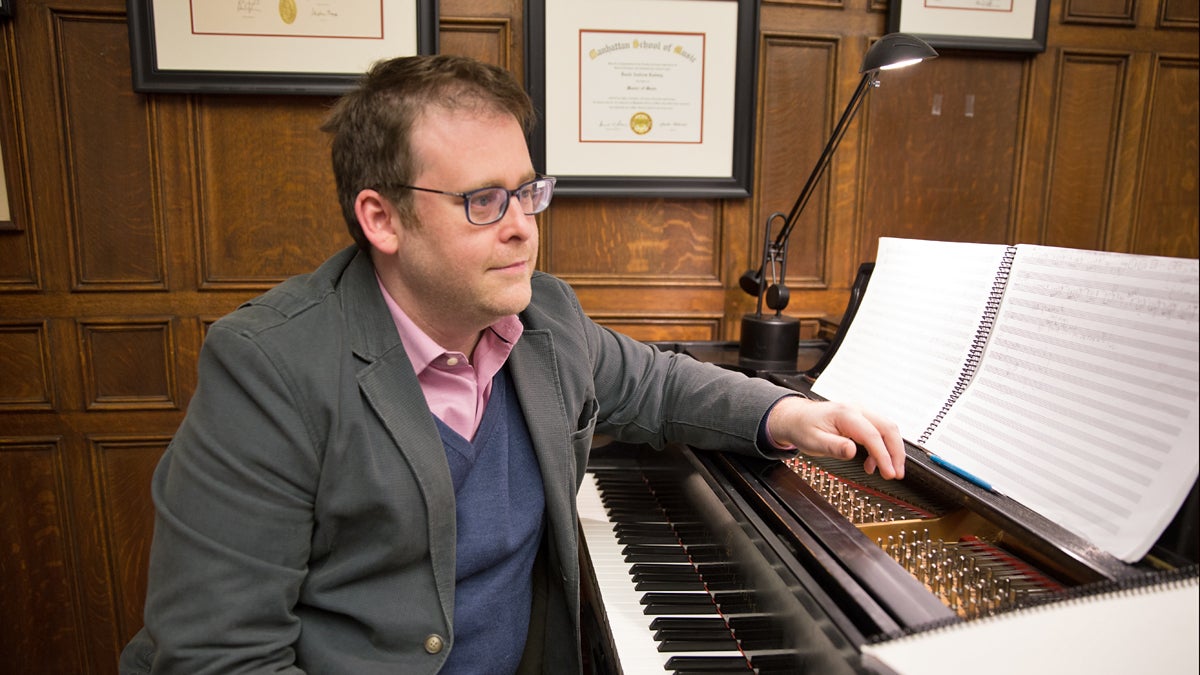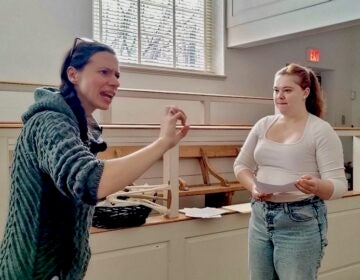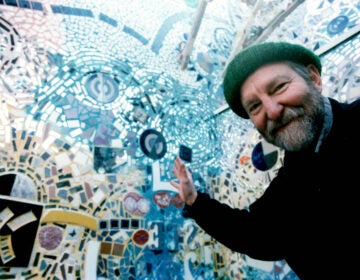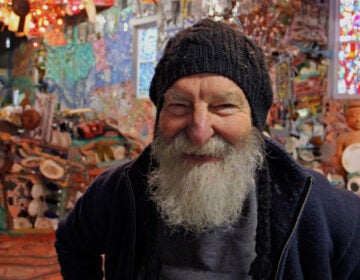Philadelphia Orchestra bassoonist explores instrument’s ‘spiritual side’

Composer David Ludwig wrote "Pictures from the Floating World," a bassoon concerto for Philadelphia Orchestra musician Daniel Matsukawa. (Lindsay Lazarski/WHYY)
The Philadelphia Orchestra’s principal bassoonist Daniel Matsukawa believes the 20th century, for the most part, has been rough on his instrument.
“‘Fantasia’ and ‘Sorcerer’s Apprentice’ did us in,” said Matsukawa of the landmark animated Disney film for which the Philadelphia Orchestra provided the soundtrack in 1940. “After ‘Fantasia,’ the cartoon industry took the bassoon and made us the go-to caricature instrument.”
When Matsukawa asked composer David Ludwig to write a new concerto for bassoon, he was not looking for any humpty-dumpty rhythms.
“At this point, after the whole 20th century of new bassoon concertos, I said to David, ‘It’s time to bring back the age of lyricism,'” said Matsukawa. “Not so bouncy.”
That composition, “Pictures from the Floating World,” will premiere this weekend during the Philadelphia Orchestra’s micro-festival of new commissions. It will be performed on Friday afternoon with “Nu Shu: The Secret Language of Women” by Tan Dun featuring harpist Elizabeth Hainen, and on Saturday with a new flute concerto by Behzad Ranjbaran, featuring principal flutist Jeffrey Khaner.
Ludwig, an instructor at the Curtis Institute and longtime friend of the bassoonist, started to write what would become “Pictures” by asking Matsukawa to sit down and show him everything a bassoon can do.
“It’s difficult to write a concerto for bassoon, because it doesn’t project like a piano,” said Ludwig. “But it’s close to writing for voice. You think about breath, and range — just like a singer. The low part of the range is very different from the top.”
“Pictures from the Floating World” is the English translation of the name for Japanese woodblock prints of landscapes and waterscapes, Ukiyo-e. Ludwig was also thinking about French composers, particularly Debussy, who wrote “La Mer” (The Sea). The bassoon parts ebb and flow in long, melodic lines.
“Every movement is water scenes,” said Ludwig. “Danny was clear to me that he didn’t want any short notes, any bouncy, clowning-around bassoon music. We really wanted to explore the instrument’s spiritual side.”
Matsukawa also wanted it to be catchy. When he is learning to play a new piece, he likes to “internalize” the composition by singing it to himself or humming melodies at random times of day.
“I’m on the street, and people might think I’m crazy. I don’t mind. I don’t know them from Adam,” said Matsukawa. “I love that I’m not purposely trying to sing it. I just catch myself.”
Matsukawa and Ludwig have known each other for more than 15 years (both are graduates and faculty of Curtis), and have been collaborating closely on the final touches of this composition. Ludwig says a premiere by a performer of Matsukawa’s stature will make serious bassoonists around the world sit up and pay attention.
“He’s been calling me ‘his composer,’ like he’s Prince Esterhazy,” said Ludwig, referring to “the Magnificent” Hungarian who employed Joseph Haydn. “I’ll be out, and he’ll come up to my friends and say, ‘why are you talking to ‘my composer?’ I kind of like it.”
WHYY is your source for fact-based, in-depth journalism and information. As a nonprofit organization, we rely on financial support from readers like you. Please give today.





